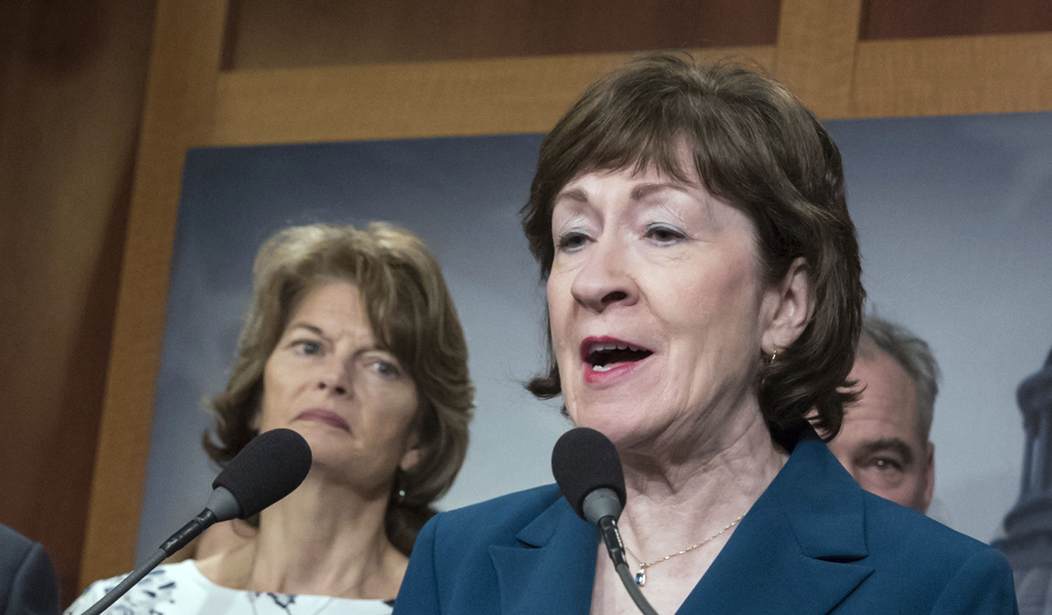On Election Day, a majority of voters elected to make this country great again after years of malaise due to the disastrous policies of the Biden-Harris administration. With Donald Trump announcing his cabinet picks, there has been a lot of talk about whether some of the more controversial selections can be confirmed, and two names that have come up as likely “no" votes are Sens. Lisa Murkowski (R-Alaska) and Susan Collins (R-Maine).
Both senators voted to convict Trump during his second sham impeachment and are likely to be a problem confirming some nominees but for the MAGA agenda for the next four years.
The MAGA base will inevitably be disappointed in how both of them vote on key legislation and on judicial nominees and administration appointments and want to hold them accountable. However, the GOP must tailor its approach to handling each senator to their respective states and political realities.
Maine is a consistently blue state where Collins has managed to hold her Senate seat since being first elected in 1996 and most recently reelected in 2020.
Recommended: Does Sonny Hostin Think She Cost Kamala Harris the Election?
Although she sometimes votes against the party’s wishes, her ability to win in a blue state (which Kamala Harris won handily by nearly seven points) is a significant asset for Republicans. Collins’ seat not only bolsters the GOP’s numbers in the Senate but also helps the party maintain control over key legislative functions, like committee assignments — which could be critical if the balance of power tightens after the next election.
The possibility of replacing her with a more conservative candidate is remote and would likely lead to a Democratic victory instead. For these reasons, Republicans should avoid a primary challenge in her 2026 race, recognizing that Collins, despite her independence, is the best option for maintaining a GOP foothold in Maine.
Murkowski’s situation in Alaska, however, is different.
Alaska is a solidly red state where conservative Republicans do very well. Murkowski has repeatedly broken with party leadership, most notably in her votes concerning Trump’s second impeachment, which has led to frustration among Alaska’s conservative base.
But she is vulnerable and can be replaced with a more solid Republican. Her 2022 reelection was made possible by Alaska’s ranked-choice voting system, which allowed her to gather support from moderate Republicans and independents to overcome a more conservative challenger.
The fate of the repeal of ranked-choice voting in Alaska is still uncertain, but if it happens, it could radically change the dynamics of Murkowski’s next race in 2028. Without this system, a conservative Republican would have a clearer path to unseating her in a traditional primary, where rallying the GOP base alone would be enough to win.
This would present Republicans with a prime opportunity to launch a primary challenger to Murkowski who is more reliably aligned with the party’s agenda and win the election. Nevertheless, Republicans need to proceed carefully and strategically to avoid a divisive primary that might weaken the eventual candidate in the general election. Choosing a strong, unifying conservative candidate will be essential.
I get that everyone feels emboldened right now and wants a party 100% on board with the Trump agenda, but a one-size-fits-all approach doesn't work. By tailoring their strategy to each state, Republicans can strengthen their chances of building a larger majority in the Senate and not losing winnable seats to the Democrats due to an ideological purity test.










